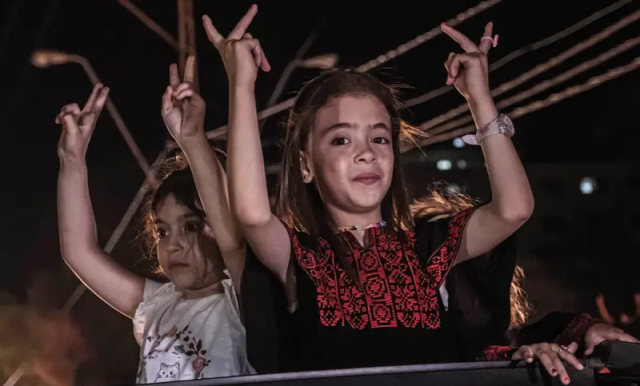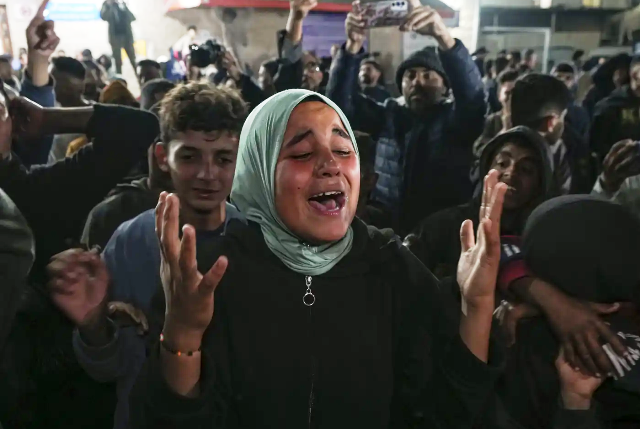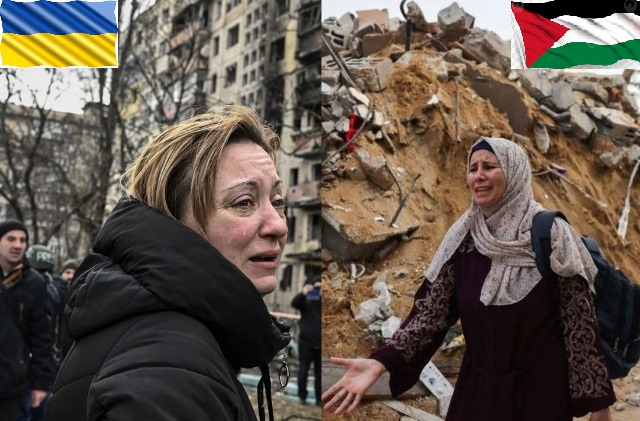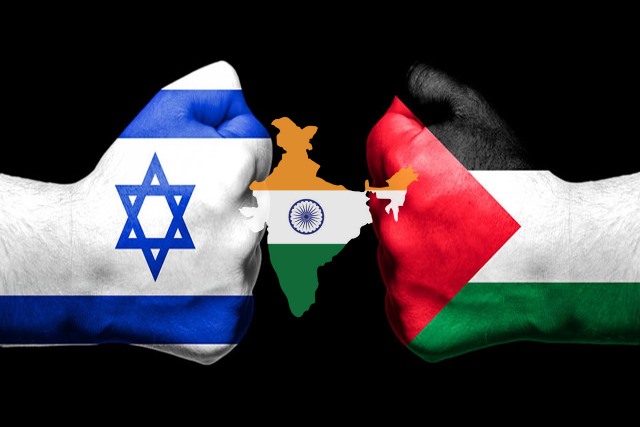So what is happening in Gaza right now? Is there optimism in the air? Is that woman on the street smiling? Or, is it a half-smile, hiding a deeper reality? Will this sudden, infectious joy spread across the vast graveyards of solitude?
It’s ceasefire now after 13 months of Genocide in Gaza. A totally discredited Joe Biden (after pumping $23 billion worth of deadly weapons, bombs and arms to Israel since it all started), still wants to take credit. Earlier, Donald Trump had threatened that “all hell will break lose in the Middle East” if Hamas does not release the captured Israeli hostages before he enters the White House.
There is a wave of ‘great expectations’ floating in the dilapidated refugee camps and open-air shelters in Gaza, where the war-smoked air is heavy with dying and death, hunger and epidemics, mourning, and mass psychological trauma.
The bombing has been relentless, while the talks were on. Yesterday, 60-plus dead, or more. How many today? Reports say that 15 children were killed every day in the recent past.
Most of them innocent civilians, of course. Because Hamas fighters are underground, in the tunnels. So, as usual, they choose to kill ordinary folks, disarmed, helpless, out in the open.
It is well-known that Israel targets women and children especially, often through surveillance, and kills them, because they don’t want either women or children to resurrect the ‘tree of life’ in Palestine. The orthodox hardliners have always wanted what was the original Nazi project: ‘The Final Solution!’
That is, total elimination of the Palestinian people and total occupation of their ancient homeland. So that the fraudulent and mythical Jewish ‘holy land’ can be finally achieved. Mass slaughter thereby becomes a ‘sacred act’. A divine project.
Yesterday, I saw an Al Jazeera video report — ‘on the spot’ — from inside Gaza. In a context whereby almost 200 journalists have been killed, often as targeted assassinations by snipers, drones and bombing of marked buildings, this is good news for the people out there. And journalists desperate to enter Gaza and report from the ground.
Talking to the reporter, a mother with her little one, say that there is an “atmosphere of hope, of optimism” in the air. She says that it will be good if the non-stop bombing stops once and for all. “If the ceasefire happens, my first question to my friends and family would be ‘what are your plans, your dreams’?”
Well, the resilience of the people of Gaza has always been beyond the impossible, and history is replete with such stories of their guts and bravery — and the desire to live and start anew. Undoubtedly, no ‘Final Solution’ can ever succeed in the face of such infinite courage. If Maxim Gorky’s great novel, Mother could be written again in our times, it should be on the ‘Great Mothers of Gaza’, dead and alive.
And those who will live to tell the tale.
According to Al Jazeera, an old man, in a tent, said, crying, “I love my homeland. I love the soil I live in. As many as 45 people survive on one kilo of flour.”
A woman said, on the street, “My main aim is to seek eye-treatment. I want to see. I want to see the world!” With no medical treatment available, her retina had become worse during this one-sided war. Now she wants to see again.
ALSO READ: Gaza On Their Lips
Others want to go home. Meet their families, friends, neighbours and relatives. Perhaps, mourn for the dead, collectively, so that the wounds can be healed.
The video shows that people are walking on the ravaged streets, others are out in the open, some cars are on the road, and kids — those who have survived the bombs — are laughing and playing around.
Another video shot by unknown people has gone viral on social media. A young man in a refugee camp is smiling. Yes, smiling. Almost happy! And he is holding a big hammer. Why, for God’s sake?
He says, the smile refusing to leave his haggard, bearded face, that he has been keeping the hammer below his pillow, hoping against hope that finally there will be peace in the morning; and then, he will dismantle his tent with the hammer.
And, perhaps, yet again, start a new life — with hammer, sickle, iron in the soul, wearing shoes and socks, in a shirt and trouser, warm clothes, planting a seed of an Olive tree which they love so much, water it with his blood and sweat, and, then, grow an utopian orchard of Olive trees on the rubble.
Bisan is an intrepid young Palestinian woman reporter, who has been reporting from Gaza (or somewhere unknown). She has posted, “Two million Palestinians in Gaza and millions outside, are waiting for the ceasefire right now, tired, hungry, grieving and helpless. God don’t break our hearts.”

Early this week, Hind Khoudary, another brave woman journalist, was seen hugging her colleague, in a nameless location. They seem to be strong, optimistic. Yes, almost happy!
She said in an interview: “When people ask me, why did you stay in Gaza? My answer is simple. I am in love with Gaza.”
Yesterday, there wee signs of hope in Gaza, after a long, long time. Today there is great joy, deep inside, certainly, mixed with infinite pain. Perhaps, a sense of relief.
Now, once journalists, writers, filmmakers and story-tellers enter Gaza, there will be so many stories to be discovered, inside the rubble and outside, on their skin smeared with faded, clotted blood, in their simmering wounds; there will be stories in the half-burnt pictures of loved ones which have still managed to survive in a half-burnt kitchen wall of a half-burnt home.
There will be a bunch of wild purple flowers, swaying with the winter wind, which have grown through the crevices of that destroyed building, defying the bombs, promising eternal life.
Rusted with fire, old steel trunks will be dug out from the remains of their lost, shattered memories, bangles, keffiyehs, letters, photo albums; sweaters stitched so meticulously, with the nimble fingers of a grandmother, like an artist; love stories and stories of separation; messages, which never managed to reach their destination.
The clock had stopped!
Hand-written letters, un-posted, un-stamped, un-addressed, scattered like ruins of a sublime relationship. A sister who could not see her brother for years because she was in Gaza, and he was in West Bank; because the check-points did not allow it; the brother, who reached out, because her mobile messages simply stopped coming one day.
He soon discovered that she, a dedicated doctor, who lived in a bombed out building and slept on a broken chair, was murdered while travelling to her hospital. Like so many doctors and nurses.
There will be not ‘One Hundred Years of Solitude’, like that epic novel by Gabriel Garcia Marquez. There will be no magic realism here. There will be a million years of solitude and sadness stalking the sudden, solitary, serenity of this silence.
And feverish eyes will hide many more stories. They will run away from other eyes. Fingers will ache to hold the fingers of those who are no more — that warm touch. Oh!
Gone. Forever.


